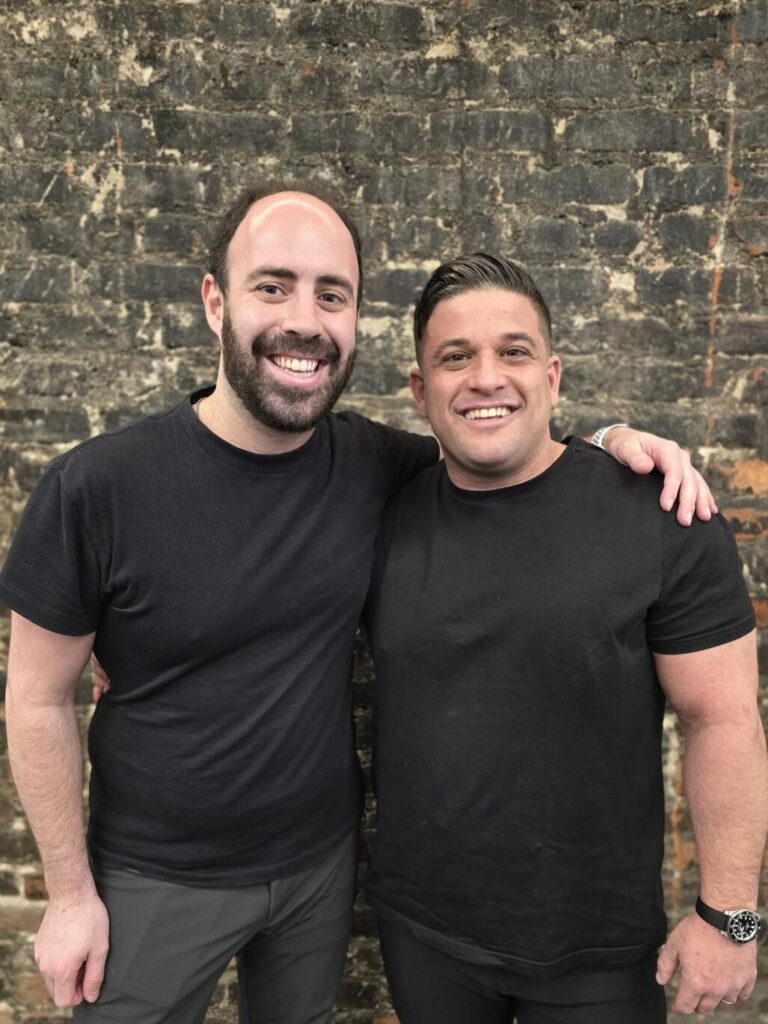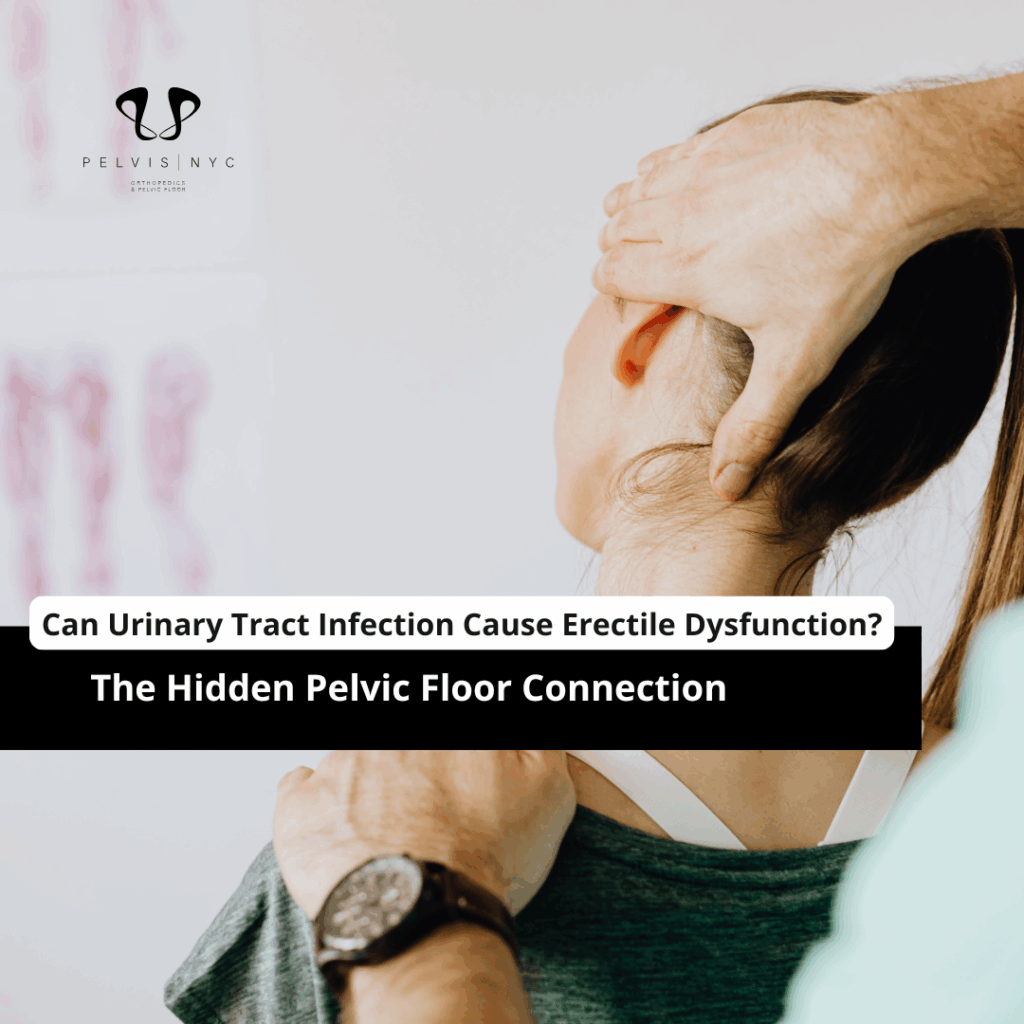Most men don’t want to talk about their balls, especially if something feels weird or off down there. But if you’ve ever felt a strange heaviness, dull ache, or swelling in your scrotum, you might be dealing with something called a varicocele.
It’s more common than you’d think. About 1 in 7 men will get one, and for guys dealing with fertility issues, that number jumps to nearly 1 in 2.
So let’s break it down—what varicoceles are, why they matter, what you can do about them, and how physical therapy (yep, really) can be part of the solution.
The Male Reproductive System
Before we go deeper, let’s quickly break down how the male reproductive system works—and why something like a varicocele can quietly throw the whole thing off.
The main parts of the male reproductive system include the testicles, which are responsible for making sperm and testosterone; the epididymis, where sperm mature; and the vas deferens, which transports sperm during ejaculation. Supporting glands like the seminal vesicles and prostate add fluid that makes up semen, helping sperm survive their journey.
All of this needs to work in sync. But here’s the catch: sperm production is extremely sensitive, especially to heat, pressure, and blood flow. That’s why your testicles hang outside the body in the first place: to stay a few degrees cooler than your core temperature.
So when something like a varicocele causes enlarged veins and increased heat around the testicles, it can throw off that delicate balance. The result? Poor sperm health.
That’s where a semen analysis comes in.
If you’re trying to conceive and it’s taking longer than expected (usually six to twelve months), doctors often order this test to get a read on:
- Sperm count – how many sperm are in your semen
- Motility – how well your sperm swim
- Morphology – how normal they look in size and shape
- Volume and consistency of the semen itself
If any of those numbers are off, a varicocele is one of the first things a urologist will look for—because it’s such a common, correctable cause of male infertility.
So… What Is a Varicocele?
A varicocele is a varicose vein—but in your scrotum, not your legs. The veins that carry blood away from your testicles get enlarged and twisted, usually on the left side, thanks to how our plumbing is built.
You might feel:
- A weird dragging sensation in your groin
- A dull ache after standing or working out
- Swelling or even a “bag of worms” feel (yeah, it’s as weird as it sounds)
- Or maybe… nothing at all
And that’s what makes varicoceles so tricky. Some guys don’t notice anything until they and their partner start trying for a baby, and suddenly, a semen analysis throws up red flags.
Varicocele Symptoms: What to Watch For
Not all varicoceles cause noticeable pain or discomfort, which is why many men don’t even realize they have one until a fertility issue arises. But when symptoms do show up, they can include a dull, aching pain or a sense of heaviness in the scrotum. Some men notice a visible or palpable lump, often described as feeling like a “bag of worms” (strange but accurate), and swelling or asymmetry in the testicles, most commonly on the left side. Discomfort may become more noticeable after standing for long periods, lifting weights, or during physical activity.
In many cases, the first clue comes during a fertility workup, when a doctor orders a semen analysis and finds issues like low sperm count or abnormal motility. That’s often when the varicocele diagnosis comes into focus, turning what seemed like a minor issue into a much more pressing concern.
How Does Varicocele Affect Fertility?
Here’s where it gets serious. Varicoceles can mess with your male reproductive system in a few important ways:
- Raises testicle temperature → Sperm don’t develop properly in heat
- Reduces oxygen and blood flow → Leads to oxidative stress, damaging sperm DNA
- Impaired hormone regulation → May lower testosterone over time
📊 Studies show that varicoceles are present in 40% of men with abnormal semen parameters, and treating them can improve both sperm quality and pregnancy rates.
How Is a Varicocele Diagnosed?
Doctors typically diagnose a varicocele during a physical exam or scrotal ultrasound. You may be asked to stand and perform a Valsalva maneuver (basically bearing down) so they can check for vein enlargement.
It’s often graded from Grade 1 (small) to Grade 3 (large), and those grades help determine the need for medical treatment.
Varicocele Treatment Options: What Can You Do?
Not every varicocele needs to be treated. But if you’re in pain, your semen quality is poor, or you’re trying to conceive without luck, here’s what you can consider:
Watchful Waiting
If your varicocele is small and symptom-free, doctors may suggest monitoring it regularly, especially if you’re not trying to have kids right now.
Medical Treatment: Varicocele Surgery
If you’re dealing with pain or fertility problems, varicocele surgery (aka varicocelectomy) is often recommended. It involves tying off the enlarged veins to restore normal blood flow.
There are a few surgical techniques:
- Microsurgical varicocelectomy – highest success, lowest risk
- Laparoscopic surgery
- Percutaneous embolization – a minimally invasive option using a catheter
According to the American Urological Association, surgery improves semen quality in 60–80% of men and boosts natural pregnancy rates in many couples.
How Can Physical Therapy Help Varicocele?
This is where things get interesting. Most men are never told that pelvic physical therapy can support recovery and manage symptoms, sometimes even before considering surgery.
1. Pain Management
Chronic testicular or pelvic pain isn’t always about the veins. Sometimes, it’s due to muscle tension, nerve entrapment, or poor posture.
A men’s health PT can release tension in the:
- Pelvic floor
- Hip flexors
- Lower back and core
These techniques relieve pressure and improve blood flow.
2. Post-Surgical Recovery
After varicocele repair, PT helps you:
- Regain core strength
- Reduce scar tissue adhesions
- Return to pain-free sex, sports, and workouts
🧠 Fact: About 30–50% of men with varicocele-related pain continue to feel discomfort even after surgery (AUA Guidelines, 2021). Physical therapy can address muscular and nerve-based causes that surgery doesn’t fix.
3. Pelvic Floor Rehabilitation
Pelvic floor dysfunction in men can mimic varicocele pain, worsen congestion, and impair urinary/sexual function.
Men’s health PTs use techniques like:
- Biofeedback
- Internal release (yes, men have pelvic floors too!)
- Diaphragmatic breathing to improve circulation
4. Lifestyle Support
PTs can guide you in:
- Movements that improve venous return
- Anti-inflammatory routines (breathing, stretching)
- Advice on compression, lifting techniques, and posture
What the Research Says
- 2018 Review (Andrologia): Varicocele-related pain is often neuromuscular, not purely vascular. Conservative therapies like PT should be part of the care plan.
- 2021 Study (Urology Journal): Men undergoing PT after varicocelectomy reported faster pain relief and improved daily function.
- Pelvic PT Research (Hodges, 2020): The pelvic floor is central to venous and lymphatic return, a key factor in varicocele symptom management.
When Should You See a PT?
You should consider seeing a pelvic health PT if:
- You’ve had surgery but still have discomfort
- You’re dealing with testicular or groin pain that doesn’t seem to improve
- You want to explore non-surgical options before going under the knife
- You’ve noticed that posture, movement, or stress makes symptoms worse
There’s Help—You Just Have to Ask
A varicocele isn’t the end of the world—but it’s also not something to brush off. Whether it’s causing pain, fertility issues, or just messing with your peace of mind, you deserve answers and real solutions.
Between surgical treatment, lifestyle changes, and physical therapy, there are more options than you think. The key is getting the right diagnosis and building a team that helps you move forward—without shame, fear, or guesswork.
Ready to Take the Next Step?
If you’re dealing with testicular pain, fertility struggles, or just want answers about your body, you don’t have to navigate it alone. At Pelvis NYC, we specialize in male pelvic health, offering personalized, expert-led care that supports your recovery, improves blood flow, and helps you feel like yourself again.
Whether you’re preparing for varicocele treatment, recovering from surgery, or exploring non-invasive options, our team is here to help you move forward confidently and pain-free.👉 Book a private consultation today at Pelvis NYC and take control of your health, your fertility, and your future.





No comment yet, add your voice below!